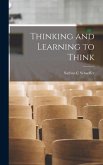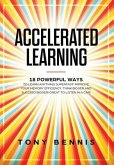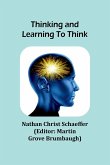Bonnie M. Davis
How to Coach Teachers Who Don't Think Like You
Using Literacy Strategies to Coach Across Content Areas
Bonnie M. Davis
How to Coach Teachers Who Don't Think Like You
Using Literacy Strategies to Coach Across Content Areas
- Broschiertes Buch
- Merkliste
- Auf die Merkliste
- Bewerten Bewerten
- Teilen
- Produkt teilen
- Produkterinnerung
- Produkterinnerung
This how-to resource encourages teachers to write and reflect upon their practices in a unique approach to coaching that bridges content areas and honors distinctive learning styles.
Andere Kunden interessierten sich auch für
![Ways to Think About Mathematics Ways to Think About Mathematics]() Steve BensonWays to Think About Mathematics100,99 €
Steve BensonWays to Think About Mathematics100,99 €![Just Who Do We Think We Are? Just Who Do We Think We Are?]() Claudia Mitchell / Kathleen O'Reilly-Scanlon / Sandra Weber (eds.)Just Who Do We Think We Are?227,99 €
Claudia Mitchell / Kathleen O'Reilly-Scanlon / Sandra Weber (eds.)Just Who Do We Think We Are?227,99 €![What Do You Think? What Do You Think?]() Joseph OlivieriWhat Do You Think?27,99 €
Joseph OlivieriWhat Do You Think?27,99 €![Thinking and Learning to Think Thinking and Learning to Think]() Schaeffer Nathan CThinking and Learning to Think39,99 €
Schaeffer Nathan CThinking and Learning to Think39,99 €![Accelerated Learning: 18 Powerful Ways to Learn Anything Superfast! Improve Your Memory Efficiency. Think Bigger and Succeed Bigger! Great t Accelerated Learning: 18 Powerful Ways to Learn Anything Superfast! Improve Your Memory Efficiency. Think Bigger and Succeed Bigger! Great t]() Tony BennisAccelerated Learning: 18 Powerful Ways to Learn Anything Superfast! Improve Your Memory Efficiency. Think Bigger and Succeed Bigger! Great t24,99 €
Tony BennisAccelerated Learning: 18 Powerful Ways to Learn Anything Superfast! Improve Your Memory Efficiency. Think Bigger and Succeed Bigger! Great t24,99 €![Thinking and learning to think Thinking and learning to think]() Nathan Christ SchaefferThinking and learning to think29,99 €
Nathan Christ SchaefferThinking and learning to think29,99 €![The Willing to Buy Coach The Willing to Buy Coach]() Dan SchultheisThe Willing to Buy Coach26,99 €
Dan SchultheisThe Willing to Buy Coach26,99 €-
-
-
This how-to resource encourages teachers to write and reflect upon their practices in a unique approach to coaching that bridges content areas and honors distinctive learning styles.
Hinweis: Dieser Artikel kann nur an eine deutsche Lieferadresse ausgeliefert werden.
Hinweis: Dieser Artikel kann nur an eine deutsche Lieferadresse ausgeliefert werden.
Produktdetails
- Produktdetails
- Verlag: Corwin
- Seitenzahl: 232
- Erscheinungstermin: 19. November 2007
- Englisch
- Abmessung: 280mm x 216mm x 13mm
- Gewicht: 595g
- ISBN-13: 9781412949101
- ISBN-10: 1412949106
- Artikelnr.: 22832871
- Herstellerkennzeichnung
- Libri GmbH
- Europaallee 1
- 36244 Bad Hersfeld
- gpsr@libri.de
- Verlag: Corwin
- Seitenzahl: 232
- Erscheinungstermin: 19. November 2007
- Englisch
- Abmessung: 280mm x 216mm x 13mm
- Gewicht: 595g
- ISBN-13: 9781412949101
- ISBN-10: 1412949106
- Artikelnr.: 22832871
- Herstellerkennzeichnung
- Libri GmbH
- Europaallee 1
- 36244 Bad Hersfeld
- gpsr@libri.de
Consulting Description Bonnie M. Davis, PhD, is a veteran teacher of more than forty years who is passionate about education. She taught in middle schools, high schools, universities, homeless shelters, and a men's prison. She holds a doctorate in English from St. Louis University and is the recipient of numerous awards, including Teacher of the Year in two public school districts, the Governor's Award for Excellence in Teaching, and the Anti-Defamation League's World of Difference Community Service Award. She has presented at numerous national conferences and currently works in school districts across the country. Dr. Davis' work centers on examining what "we don't know we don't know" about ourselves in order to more effectively teach students who don't look like us. Moving from self reflection to action, her books offer educators culturally responsive, standards-based instructional strategies that bridge culture, language, race, and ethnicity. Dr. Davis's publications include the How to Teach Students Who Don't Look Like You: Culturally Responsive Teaching Strategies(2012);How to Coach Teachers Who Don't Think Like You: Using Literacy Strategies to Coach Across Content Areas (2007); The Biracial and Multiracial Student Experience: A Journey to Racial Literacy(2009); and Creating Culturally Considerate Schools: Educating Without Bias (2012) with coauthor Kim L. Anderson. She is currently working on the Equity 101 Series with Curtin Linton, Executive Vice President of School Improvement Network.
Introduction: How to Read This Book
Acknowledgments
About the Author
1. Moving From Teaching Students to Coaching Teachers
2. Organizing to Save Stress, Time, and Mistakes: Your Personal Tool Kit
3. Coaching Teachers Who Don¿t Think Like You
4. Coaching in a Variety of Settings: Experienced Coaches Share Their
Success Stories
5. Scheduling Time for Coaching
6. Analyzing Coaching Scenarios
7. Using Classroom Demonstrations and Professional Development Workshops as
Coaching Tools
8. Using Literacy Strategies Across Content Areas to Improve Student
Achievement
9. Coaching Teams of Teachers to Improve Instruction
10. Coaching Teachers to Write and Reflect Upon Their Instructional
Practices
11. Coaching Teachers as Writers: The Writing Workshop Model
Final Words
Appendices
Bibliography and Recommended Web Sites
Index
Acknowledgments
About the Author
1. Moving From Teaching Students to Coaching Teachers
2. Organizing to Save Stress, Time, and Mistakes: Your Personal Tool Kit
3. Coaching Teachers Who Don¿t Think Like You
4. Coaching in a Variety of Settings: Experienced Coaches Share Their
Success Stories
5. Scheduling Time for Coaching
6. Analyzing Coaching Scenarios
7. Using Classroom Demonstrations and Professional Development Workshops as
Coaching Tools
8. Using Literacy Strategies Across Content Areas to Improve Student
Achievement
9. Coaching Teams of Teachers to Improve Instruction
10. Coaching Teachers to Write and Reflect Upon Their Instructional
Practices
11. Coaching Teachers as Writers: The Writing Workshop Model
Final Words
Appendices
Bibliography and Recommended Web Sites
Index
Introduction: How to Read This Book
Acknowledgments
About the Author
1. Moving From Teaching Students to Coaching Teachers
2. Organizing to Save Stress, Time, and Mistakes: Your Personal Tool Kit
3. Coaching Teachers Who Don¿t Think Like You
4. Coaching in a Variety of Settings: Experienced Coaches Share Their
Success Stories
5. Scheduling Time for Coaching
6. Analyzing Coaching Scenarios
7. Using Classroom Demonstrations and Professional Development Workshops as
Coaching Tools
8. Using Literacy Strategies Across Content Areas to Improve Student
Achievement
9. Coaching Teams of Teachers to Improve Instruction
10. Coaching Teachers to Write and Reflect Upon Their Instructional
Practices
11. Coaching Teachers as Writers: The Writing Workshop Model
Final Words
Appendices
Bibliography and Recommended Web Sites
Index
Acknowledgments
About the Author
1. Moving From Teaching Students to Coaching Teachers
2. Organizing to Save Stress, Time, and Mistakes: Your Personal Tool Kit
3. Coaching Teachers Who Don¿t Think Like You
4. Coaching in a Variety of Settings: Experienced Coaches Share Their
Success Stories
5. Scheduling Time for Coaching
6. Analyzing Coaching Scenarios
7. Using Classroom Demonstrations and Professional Development Workshops as
Coaching Tools
8. Using Literacy Strategies Across Content Areas to Improve Student
Achievement
9. Coaching Teams of Teachers to Improve Instruction
10. Coaching Teachers to Write and Reflect Upon Their Instructional
Practices
11. Coaching Teachers as Writers: The Writing Workshop Model
Final Words
Appendices
Bibliography and Recommended Web Sites
Index








